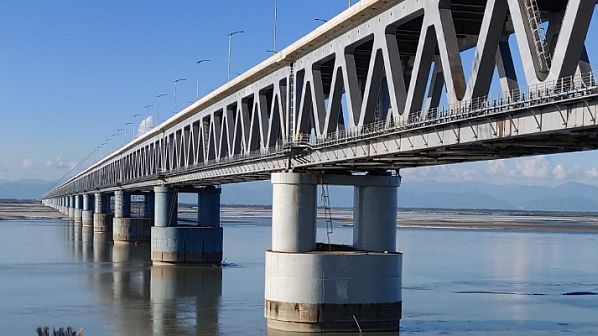India’s former prime minister Mr H D Deva Gowda laid the foundation stone for the project in January 1987, but the scheme was not inaugurated until 2002. Even then work did not begin until 2007 when the bridge was granted national project status. Progress was slow because high rainfall in the area restricted the time when construction could take place. The cost of the project has risen from Rs 17.67bn to Rs 59.2bn ($US 752.6m).
The Bogibeel bridge is claimed to be longest road-rail bridge in India and has two broad-gauge tracks on the lower level and a three-lane road on the upper deck. The truss bridge is India’s first fully-welded steel bridge built to European standards. It has concrete support beams and is designed to withstand earthquakes of up to magnitude 7 on the Richter scale.
Following an inaugural run on December 25, Northeast Frontier Railway introduced an Intercity Express service the following day operating five days per week between Tinsukia in Assam and Naharlagun in Arunachal Pradesh with a 5h 15min journey time.

